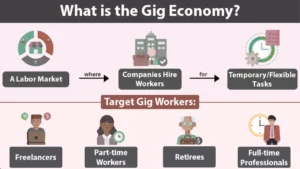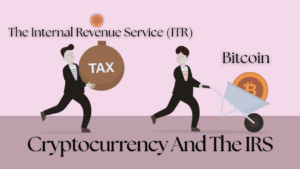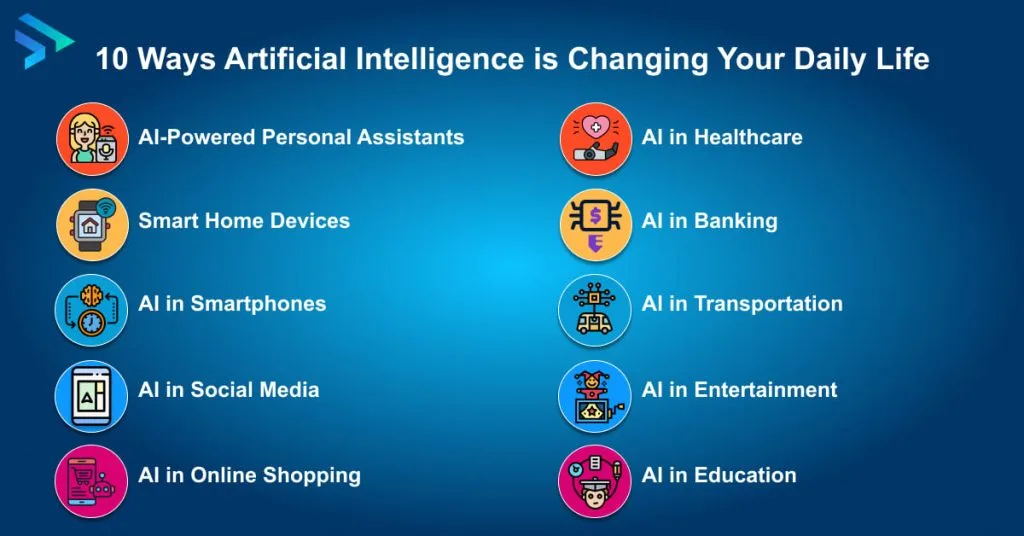From recent history, we can see how Technology in Government services have conventionally been slow, with heavy paperwork frustrating for citizens. But thanks to artificial intelligence (AI) and various mobile apps, public services are becoming faster, smarter, and more user-friendly.

Governments are exploiting AI for self-operating tasks, analyzing data for better decision making, and also amplifying citizens’ engagement through user-friendly apps. From chatbots answering citizen queries to apps that simplify tax filing, technology is transforming how governments interact with people.
In this article, we’ll explore various topics like how AI is improving government efficiency. The role of mobile apps in public services, Real-world examples of tech-driven governance, Challenges, and the future of digital government.

How AI is Revolutionising Technology in Government Services
AI is not only for big companies or small technology; worldwide, AI is being used day by day to streamline operations and enhance citizen experiences. Below are some topics to describe the services.
1. Smarter Customer Service with Talkbot

Instead of waiting on hold for hours and minutes, citizens can now get instant relief answers from AI-powered chatbots. These effective assistants handle common questions about how to pay taxes, permits, and social services, reducing wait time.
Example:

- For example, immigration processes and services for visa navigation in the U.S. Citizenship and Immigration Services can be done by AI bots.
- “Ask Jamie” is the boat used by the Singapore Government. A talkbot that answers queries on various public services.
2. Prevention and Detection of Fraud

AI examines and surveys large datasets to detect deceptive activities in welfare programs, tax filings, and acquisitions or Acquire. This saves governments billions of dollars and time yearly.
Example:
- The Internal Revenue Service (U.S.) uses AI to detect tax returns, reducing fraud.
- India’s Aadhaar system uses artificial intelligence to stop identity fraud when distributing subsidies.
3. Anticipating Policing and Public Safety
AI helps to enforce the law by investigating and predicting crime headquarters by analyzing previous data. This allows police to assign resources more beneficially.
Example:
- To reduce the crime rate, the Los Angeles Police Department (LAPD) uses predictive policing.
- Smart police stations are built in Dubai Police’s AI-powered stations and let the population report crimes without human interaction.
4. Automated Document Processing
With numerous paperwork, Governments deal with AI-powered optical character recognition(OCR) and speed up data entry, reducing errors and processing times.
Example:
- Tax filing and business registrations for 99% of public services are computerised by Estonia’s e-Governance system.
Bringing Technology in Government Services to Your Fingertips
Nowadays, Mobile applications are becoming easier than ever to access public services. Instead of standing in a long line, now citizens can complete the task in a few steps with the help of mobile phones.

Top Government Apps Transforming Public Services
| Government Apps in 2025 | ||
| App Name | Country | Key Features |
| MyGov | India | Citizen engagement, scheme updates, grievance redressal |
| Gov.uk | UK | Tax filing, passport renewal, and NHS services |
| SingPass | Singapore | Digital identity for accessing 200+ government services |
| IRS2Go | USA | Tax refund tracking, payment options, tax tips |
| Service NSW | Australia | Driver’s license renewal, fines payment, and COVID updates |
Benefits of Government Apps in the present
Numerous benefits are given by Technology in Government apps, which increase efficiency, enhance citizens’ engagement, and give transparency. The application helps the public to streamline access to reduce paperwork work and encourage more interactive relationships among citizens and the government. The following are the benefits of government applications.
- 24/7 Access :
There is no need to visit offices for any paperwork, government apps provide access to give service for customers, and eliminate office visits.
- Reduced Corruption:
Digital transactions have minimised the interference by any criminal or legal workers, as paperwork is confidential, now citizens can upload paperwork on their mobile, no extra paper, no crime.
- Faster Processing :
Applications that took weeks now take minutes.
- Eco-Friendly :
Less paper waste due to digital forms
- Simplified Processes:
work like paying bills, renewing policy, paying premiums, permits, or accessing any information can be completed digitally in a few minutes
- Enhanced Efficiency and Cost Savings:
Saving millions of paper wastage and efficiency of doing work is more compatible with the help of digital apps
- Improved Resource Allocation:
Data collected through apps can help governments to enhance resource allocation and customise services to specific needs. - Real-time Information:
Apps can provide citizens with timely updates on government initiatives, policies, and public safety information. - Open Data Access:
Government apps can make data more approachable to citizens, promoting transparency and responsibility. - Feedback Mechanisms:
Apps can improve direct communication between citizens and government agencies, enabling feedback and contributing to decision-making.
Challenges in Executing AI & Apps in Government
Every benefit has an equal number of hurdles in adoption, while adopting new technology may lead to different benefits with hurdles. For example,
1. Data Security and Privacy Concerns: Keeping citizen data digitally raises risks of hacking and misuse. Governments must invest in strong cybersecurity measures.
2. Digital Divide
Not everyone has smartphones or access to the internet. Governments should make sure there are some offline alternatives for rural and elderly populations.
3. Resistance to Change
Administrative delays and employee objections can slow down digital modification.
4. High Implementation Costs
Budgets may cost more than usual due to developing AI systems and apps because a significant amount is required for investment.
The Future of Digital Technology in Government
The future of digital government is very clear; the trend of digitally assigned projects and queries is solved in a minute. The government will keep enhancing the new technology and improving efficiency. Here’s what to expect:
| Voice-Activated Assistants | Citizens may soon interact with government services via Alexa or Google Home. |
| Blockchain for Transparency | Secure digital ledgers could prevent fraud in voting and contracts. |
| Smart Cities | AI-powered traffic management, waste disposal, and energy-saving systems will become standard. |
| Skills Development | For BPL, the government has introduced various schemes by investing in training and development programs. |
Conclusion:
AI and apps are transforming public services, making decisions faster, transparent, and more reachable. While challenges remain, the benefits far outweigh the drawbacks. By shifting to digital systems, governments can save money and build trust by offering citizens faster, easier services.




